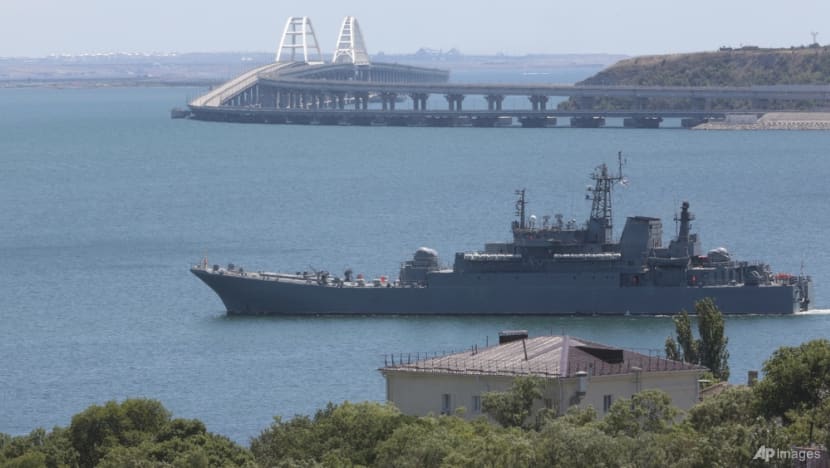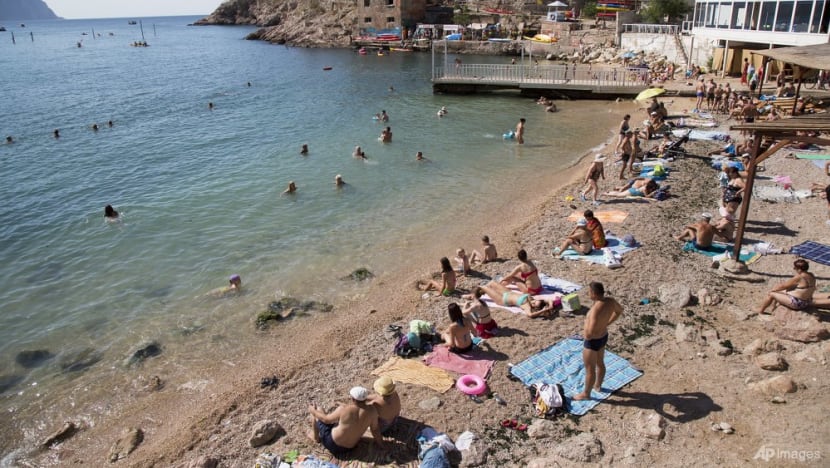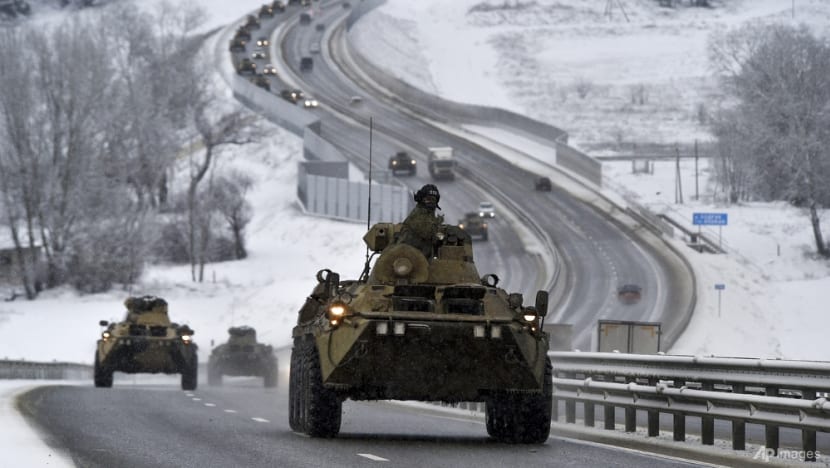'I will never forgive the Russians for that': Crimea residents long for return to homeland 10 years after annexation
The Crimean Peninsula in the Black Sea was annexed by Moscow in March 2014, turning the Ukrainian territory into part of Russia almost overnight.


This audio is generated by an AI tool.
KYIV: This month marks 10 years since Russian President Vladimir Putin annexed Crimea from Ukraine.
On Monday (Mar 18), the Russian leader attended a concert at the Red Square in the capital Moscow to mark the anniversary.
The Crimean Peninsula in the Black Sea was annexed by Moscow in March 2014, turning the Ukrainian territory into part of Russia almost overnight.
HOW IT HAPPENED
The move came after months-long protests in Kyiv, known as the Maidan Revolution, toppled pro-Russian president Viktor Yanukovych and weakened Moscow’s hold over Ukraine.
Mr Putin sought to take Crimea, which he believed rightfully belonged to Russia and deployed Russian soldiers without military insignia – called “little green men" – to infiltrate the peninsula and take control of key infrastructure and military bases.
That set the stage for an illegal referendum, with the vast majority of Crimeans voting to join Russia.
At the time, Ukrainian leaders and the international community condemned the move as illegal, with hundreds of thousands who opposed Russian occupation fleeing the peninsula.
Russia went on to build up its military presence in the region, paving the way for the current ongoing war. When Russia began its full-scale invasion of Ukraine in February 2022, Crimea became one of its main launch pads.
The peninsula continues to be a major supply route for Russian troops today, and Ukrainian forces have stepped up their attacks on military targets there, in an effort to break Moscow’s hold.
The fate of Crimea remains uncertain, deepening the despair for its former residents who had left their homeland a decade ago.
FLEEING CRIMEA
Among the Crimean residents who fled the peninsula 10 years ago is Ms Natalya Lyutikova and her family.
Ms Lyutikova was born and raised there, and still holds on to the hope that they can return home one day in the future.
When they had to leave in a hurry, her family took two suitcases and a stack of photo albums containing memories of their Crimean home with them.

They also stopped by the Black Sea for one last time before driving away.
“My youngest daughter doesn't remember Crimea at all and doesn't remember the sea, but she misses it too,” Ms Lyutikova told CNA.
“I really want, while she is a child, for her to feel what it is like to run along the shore of our Black Sea. I really want to give it to her, but I can't. I will never forgive the Russians for that.”
However, with no end in sight to the ongoing war between Russia and Ukraine, photographs are all she has for now to picture a Crimea free of Russian rule.
FORCED TO LEAVE AGAIN
Also among those who fled Crimea were the indigenous Crimean Tatars.
The group had lived in exile for decades after World War II, when Soviet Union authorities ejected them from their land, with many returning after the USSR (Union of Soviet Socialist Republics) broke up in 1991.
Fearing persecution once more, however, they were forced to leave again in 2014.
“This was a great tragedy for us because for half a century after the deportation, we fought to return to our homeland, and now due to the occupation we left Crimea again,” said Mr Mustafa Dzhemilev, the former chairman of the Mejlis of the Crimean Tatar People, which is the representative and executive body of the group.
Mr Dzhemilev also shared with CNA about his phone call with Mr Putin 10 years on from that fateful day.
“I told him: ‘If you really want something good for our people, immediately leave our territory. You are violating international law. This doesn't make people happy.’ After an attempt at a deal failed, the repression began,” he said.

Since the annexation of Crimea, Moscow has been working to silence pro-Ukrainian voices, according to human rights groups.
They believe that almost 80 per cent of prisoners in Crimea are Crimean Tatars, even though they only make up about 13 per cent of the population.
Mr Nazim Seidametov, one of the founders of the Crimean Tatar Cultural Center in Kyiv, told CNA he wants to make sure his people’s identity is not forgotten.
“That’s what we are trying to avoid, and to keep the culture at least at the same level, not to make it disappear completely,” he said.














